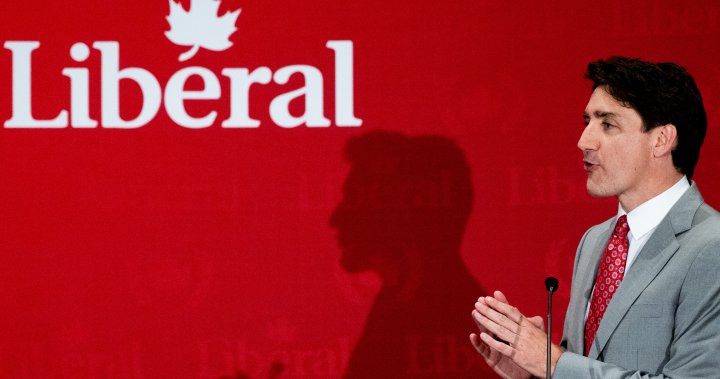Summarize this content to 2000 words in 6 paragraphs
The Liberal party has set new rules on who can vote in the leadership race. But some experts say it might not be enough to mitigate fears of foreign interference.
The party’s national board of directors met Thursday evening to decide on the initial rules of the Liberal leadership contest that will choose Trudeau’s successor.According to a press release from the Liberal party, the voting will conclude on March 9 and the new leader — and by extension, prime minister — will be announced on the same day.The cutoff date to become a member or registered supporter and be eligible to vote is Jan. 27.The board also updated the requirements for who can vote in this leadership contest. Eligible voters must:be at least 14 years of agesupport the purposes of the partybe a Canadian citizen, have status under the Indian Act, or be a permanent resident of Canadanot be a member of any other federal political party in Canada; andwhile registered as a Liberal, not have publicly declared an intention to be a candidate for election to the House of Commons other than as a candidate of the partyPreviously, one did not need to be a citizen or permanent resident of Canada to be able to vote. The new rules have added that requirement, but aren’t easing concerns just yet.Dennis Molinaro, a professor at Ontario Tech University and former security analyst with the federal government, said that “leadership races are extremely vulnerable to foreign interference attempts, especially as these rules for the leadership contest are currently set by the political parties themselves.”He said the party’s old way of electing a leader was “terrible” since it left the door open for foreign agents who might try to influence the leadership race with the least resistance.
More on Canada
More videos
The changes, he said, are welcome but not enough.
Get daily National news
Get the day’s top news, political, economic, and current affairs headlines, delivered to your inbox once a day.
“The Liberals’ change to require citizenship or permanent resident status for voting in a nomination vote is a positive step and at least puts them on a similar footing as the other parties. However, as I have maintained, it is still insufficient in the long run unless there is a verifiable way to check and confirm citizenship,” he said.Molinaro also said the changes would be “meaningless” without strict ID requirements to ascertain whether the registrant is who they say they are.After reports of people registering fraudulently to vote in the Liberal leadership race, a party spokesperson said they would act to remove such registrations.“The Liberal Party of Canada is aware of these ridiculous, fraudulent registration attempts. The national Party Secretary has the ability to remove registrants from our lists, and will be removing these fraudulent profiles well in advance of any leadership vote,” Parker Lund, spokesperson for the Liberals said in a post on X on Thursday. Molinaro said the Liberal’s age requirement of 14 or older should also change.“It also still isn’t clear to me why a person as young as 14, not able to vote in a general election, or even drive a car, should be able to vote for who would become the [prime minister],” he said.
The Liberal leadership vote will be the first major party leadership race since the establishment of the foreign interference commission’s inquiry and has raised questions in recent days about whether the process could be vulnerable to foreign interference. That new Liberal leader will become prime minister for as long as the party remains the current government, and would lead the party into the next election.The inquiry was first established in September 2023 after a series of reports by Global News and the Globe and Mail exposed alleged attempts at meddling by foreign actors like China in recent federal elections and questions about the government’s response.A spokesperson for Elections Canada told Global News, “The CEO (of Elections Canada) has been clear about his position that it is important that parties maintain control over the way run their internal affairs, including choosing their leaders and candidates.”Nelson Wiseman, professor emeritus of political science at the University of Toronto, said the voting requirement should be stricter.“Only members of a party should be permitted to vote, and those people (should) have to be members for at least six months or a year. What’s happening now is it’s a free for all,” he said.Currently, both Liberal party members and registered “supporters” who attest that they share the party’s values can vote.Wiseman said the style of Canadian leadership races could be influenced by U.S.-style presidential primaries, instead of other countries following the Westminster system of government.In those countries, the party leader and prime minister is traditionally chosen by caucus. “That’s how British parties, Australian parties and New Zealand parties select their leaders. It’s up to the caucus,” he said.After facing growing calls to resign, Trudeau announced on Monday that he will step down as the Liberal leader and the prime minister after the party chooses a successor.“This country deserves a real choice in the next election, and it has become clear to me that if I’m having to fight internal battles, I cannot be the best option in that election,” Trudeau said.Parliament has been prorogued until March 24 to allow the Liberal party to hold a leadership contest.–with files from Global’s Saba Aziz
© 2025 Global News, a division of Corus Entertainment Inc.


